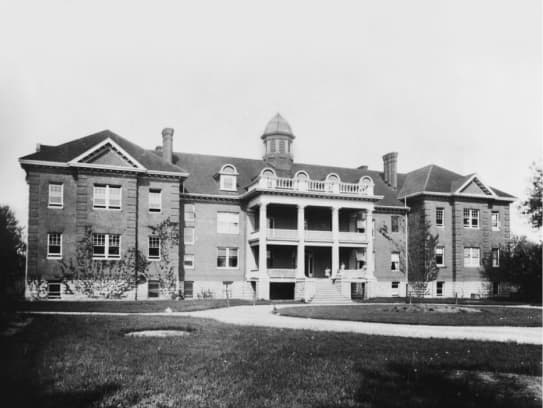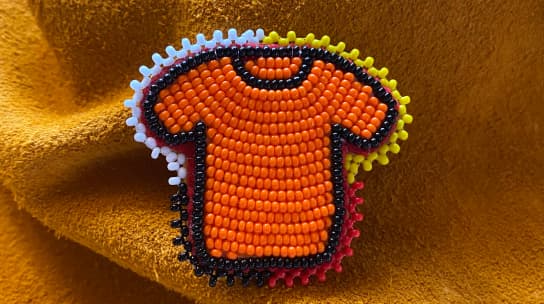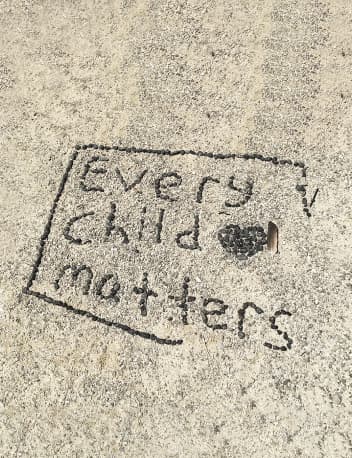Content warning
This page includes topics that may be traumatic. Access support resources if you, or someone you know, needs help or support.
Honouring the legacy of Indian Residential Schools
The Indian Residential School system operated across Canada for well over 100 years, with the last schools closing in the 1990s. Indian Residential Schools were created to separate Indigenous children from their families and communities, and to systematically strip away their traditions, cultural practices and languages.
More than 150,000 First Nations, Inuit and Métis children from across the country were forced to attend Indian Residential Schools, which were often located far from their homes. Thousands never made it home.
Each year on the federally recognized National Day for Truth and Reconciliation, we reflect and honour Survivors, their families and communities affected by the legacy of Indian Residential Schools.
About Orange Shirt Day and the National Day for Truth and Reconciliation
Orange Shirt Day
September 30 is recognized as Orange Shirt Day, an Indigenous-led grassroots commemorative day inspired by the story of Indian Residential School Survivor Phyllis Webstad.
Phyllis was 6 years old when she wore her new orange shirt for her first day at residential school. Her shirt was immediately taken from her by school staff.
To honour the children who survived Indian Residential Schools and remember those who did not, many Canadians across the country wear an orange shirt.
National Day for Truth and Reconciliation
September 30, 2021, marked the first observance of a National Day for Truth and Reconciliation, following the identification of potential unmarked burial sites at the former Kamloops Indian Residential School in British Columbia.
Survivors across Canada have long told stories of the abuse and deaths that took place at these institutions. The announcement from the Tk’emlúps te Secwépemc First Nation has galvanized nationwide efforts by Indigenous communities to locate their missing children.
Commemorating this day to honour Survivors and increase understanding of the history and legacy of Residential Schools is one step in a long journey towards truth-telling and meaningful reconciliation.
Learn and reflect
Take some time to learn about the stories of the First Nations, Inuit, and Métis peoples and the ongoing legacy of Indian Residential Schools in Ontario.
Assembly of First Nations It’s Our Time Toolkit
Access tools to help you reflect on the intergenerational harm that Indian Residential Schools have caused Indigenous families and communities.
Chiefs of Ontario resources
Access resources to help you better understand the legacy of Indian Residential Schools.
National Centre for Truth and Reconciliation
Learn about the tragic and painful legacy of Indian Residential Schools and how it continues to impact the lives of Indigenous peoples across the country.
Nishnawbe Aski Nation resources
Take steps to continue your journey towards understanding and meaningful reconciliation.
Woodland Cultural Centre Indigenous Preservation Museum
Check out a variety of educational workshops, tours and other programming to learn more about the past, present and future of Southern Ontario’s First Nations peoples.
Support
Support is available if you, or someone you know, needs help or support.
A National Residential School Crisis Line is available to provide support to former Residential School students and their families. You can access emotional and crisis referral services by calling the free of charge 24-Hour National Crisis Line at
Indigenous peoples across Canada can also connect with The Hope for Wellness Help Line 24 hours a day, seven days a week for counselling and crisis intervention. Call the toll-free help line at
Talk4Healing is a culturally grounded, fully confidential help line available in 14 languages for Indigenous women in Ontario. Call the toll-free number at
Free and confidential mental health support is available to anyone who may be affected.




